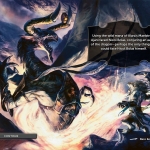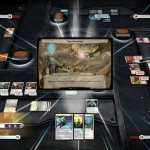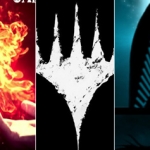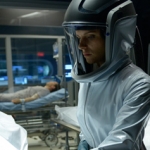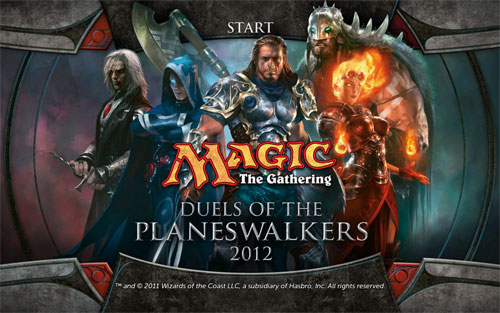
As someone who has always been enamored by the geeky and statistical allure of collectible card games but who never quite could keep up with the various metagames enough to be competitive playing with custom decks against real people, the Magic: The Gathering: Duels of the Planeswalkers games are a perfect fit for me. The original Duels released last year with beautiful art, a great interface, and enough challenges and playability to keep it in steady rotation on my Xbox Live Arcade game list. Wizards of the Coast is back this year with an updated installment as Magic: The Gathering: Duels of the Planeswalkers 2012 released this week on Steam, XBLA, and the PlayStation Network. I was able to check the game out on both Steam and XBLA, and I have to confess that I’ve been late on numerous deadlines this week, due in large part to this awesome time vortex of a game.
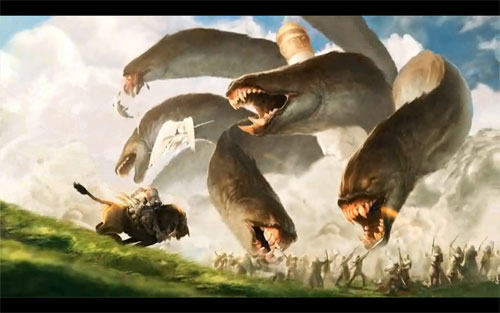
When you first fire up the 2012 Duels release, you’re treated to some backstory and an introductory cutscene featuring a number of faces that will be familiar to fans of the card game. Although I’ve played some Magic in the past and recognized some of the names, I haven’t followed the accompanying fiction, so I didn’t quite know how all the pieces fit together. This animation does a good job of setting the stage and delineating the sides in the conflict, but it really all is just set dressing for the real star of the show, the flopping of virtual cards onto a virtual table. Make no mistake, though. The animated sequences are interesting, and they’re based on the artwork taken from the original card game. Magic always has been known for inspiring some of the very best modern fantasy art around, and that really shines through here. The whole presentation is gorgeous and fits well with the franchise.
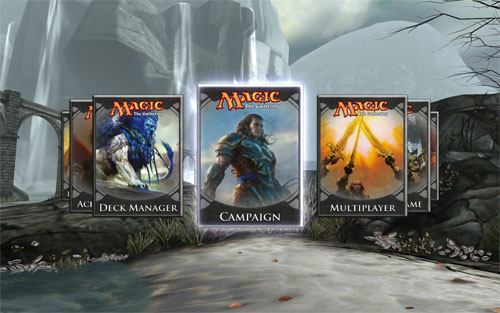
Once through the intro, you’ll be taken to a rotating menu composed of card-like buttons you’ll use to navigate the overall game. All the options are there, from viewing the game’s achievements to an options screen to entry into the single player campaign and the game’s multiplayer variants. The single player campaign has gone through a big overhaul from the previous Duels game to this one. Where the last campaign consisted basically of a menu list, from which you could select a card duel, the 2012 version features several screens of linked nodes that delineate your progression through the campaign. Each node along the way will take you either to a new duel or to a puzzle-like challenge.
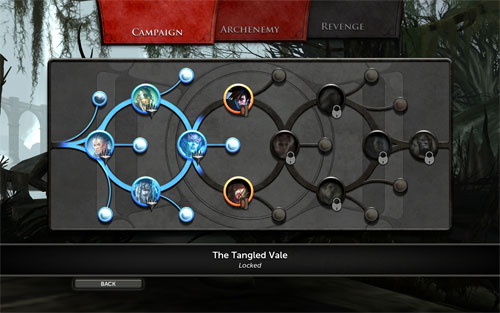
The puzzles are clever diversions that present you with a game in mid-play, usually toward the end. The board starts with a predetermined setup with specific cards already in play and other specific cards in your and your computer controlled opponent’s hands. The life meters are set to certain levels, and the game presents you with a challenge. Typically it will involve something like, “Defend against your opponent’s next attack and then defeat him in one turn.” The early challenges are very simple and serve as good intros to the game’s logic and strategies. As you progress through the challenges, they become tougher and introduce new players to more complex game concepts like Trample, Artifacts, and Regeneration. Players completely new to Magic: The Gathering will be well served by jumping into the challenges as the pop up, as they are as instructional as they are clever.
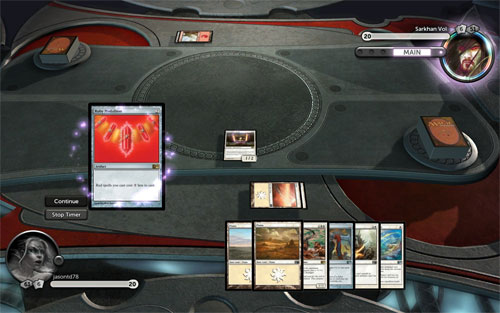
Duels comprise the main part of the campaign. You’ll be able to see the face of each opponent on the current node, so you’ll know exactly whom you’re challenging before you enter the match. Each opponent has a particular deck type, so you can prepare yourself accordingly once you learn what to expect from each character’s arsenal. The actual card gaming from the original Duels of the Planeswalkers was well executed and enjoyable, so there was not a lot of need for major overhauls or significant improvement. As such, the changes made for the 2012 game are mostly tweaks and adjustments to make the overall experience tighter and more intuitive. The game works pretty much the same between the PC and console versions, the only big difference being in the control mechanisms. The computer mouse allows for some quicker card selection than on the console, but I found that I really liked the responsiveness of the Xbox controller whenever I needed to stop the clock between card plays. It really comes down to your personal preference or your choice of platforms on which to earn the coveted achievements and trophies.
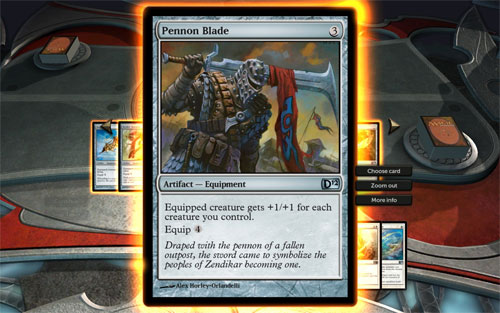
The most common complaint I heard from the previous game was that deck customization was a bit anemic. Magic: The Gathering is a game all about marshaling your forces in the form of collectible cards that you assemble into custom decks to do your bidding. The original Duels of the Planeswalkers simplified the deck building process by making it less daunting for new players but by removing most of the actual customization for veterans. You could select from a range of prebuilt themed decks to play with, and then you could unlock additional cards as you went by defeating more and more opponents with those decks. You could add and remove the unlockable cards from your decks at will, but you could not remove any of the preset cards or swap cards between decks to create multicolor monstrosities. Wizards of the Coast addressed one of those customization issues in this new game by allowing players to remove the preset cards at will. You still can’t swap cards between decks, though. While you won’t be creating any brand new decks from scratch here, there is a deeper degree of freedom just in the ability to remove unwanted cards.
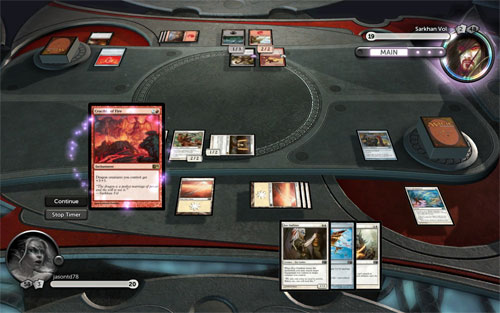
The customization differences between Duels 2012 and the physical game of Magic is a significant one, but I don’t think it lessens the greatness of Duels. It simply redefines the game and makes players approach duels with a different mindset. Classic Magic is about coming up with a strategy and building a deck around it, while Duels is about finding and honing the strategy from a prebuilt deck. It levels the playing field so that your online opponents won’t be whipping out obscure decks full of $50 cards you never could have afforded in a real life game of Magic. In this way, Duels is more about playing skill and less about outspending your opponent’s real cash.
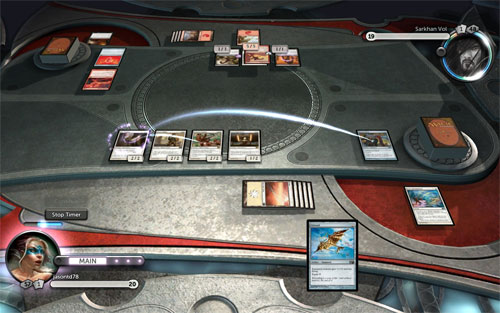
Speaking of multiplayer, there are a number of interesting options presented here, as well as some neat custom game variants. You can try out Magic against or alongside other human players online with 2, 3, and 4 player options, not to mention the returning 2-Headed Giant variant. There’s also an Archenemy game here that matches players cooperatively against a strong AI enemy, with all players working together to take down the one bad guy’s deck.
With all the variant game types, an extensive and infinitely replayable campaign, and loads of cards and decks to unlock, Magic: The Gathering: Duels of the Planeswalkers 2012 is a game that will keep you busy and entertained for a very long time. It’s fun for seasoned Magic players looking for some virtual diversion, but it’s also a great tool for newcomers to use to learn the ins and outs of this venerable and evolving card game.


